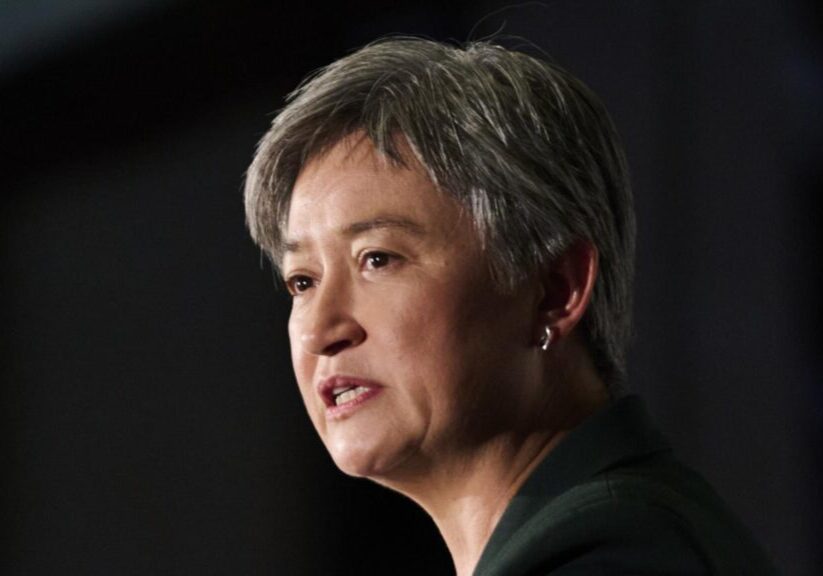IN THE MEDIA
We’re MAD if we do not rein in Iran
Nov 18, 2007 | Colin Rubenstein
Colin Rubenstein
An edited version of this article appeared in The Sunday Age, 18 November 2007
Most analysts agree that Iran is developing nuclear weapons. There are many reasons why Iran shouldn’t be allowed to do so. Iran is already the chief source of instability throughout the Middle East – it funds and arms Hezbollah, Hamas, Shi’ite terrorists in Iraq and the Taliban in Afghanistan. It acts further afield as well; Interpol last week issued international arrest warrants for five senior Iranians in relation to a 1994 bombing in Argentina. An Iran emboldened by a nuclear deterrent would likely embark on even more aggressive behaviour.
Some argue that just as the Soviet Union was deterred during the Cold War, an Iran with nuclear weapons would not actually employ them. But there’s a key difference. A nasty, though rational regime like the Soviet Union can be deterred by what is appropriately dubbed Mutually Assured Destruction, or MAD. But what if a state actually welcomes war? Iran’s President Mahmoud Ahmadinejad is driven by a vision of a world-ending messiah figure, whose reappearance can be brought forward by an apocalyptic event.
Ahmadinejad has stated his conviction this messiah is arriving soon. And he told a cleric that, during his speech to the UN two years ago, he felt an aura surround him. “I felt the atmosphere suddenly change. And for those 27 or 28 minutes, the leaders of the world did not blink… It seemed as if a hand was holding them there, and it opened their eyes to receive the message from the Islamic Republic.” This is not a man who should be in a position of authority, much less able to influence the deployment of nuclear weaponry.
Ahmadinejad’s words about Israel and the Shi’ite messiah are well known. But Iranian threats to wipe Israel off the map aren’t limited to him. Former President Ali Akbar Hashemi Rafsanjani, widely described as a moderate, mused in 2001 that a single nuclear bomb would destroy Israel, but Israeli retaliation would only cause damage to the Muslim world. And while it’s true the Iranian president doesn’t have his finger on the button, it’s instructive to listen to the man who does. Supreme Leader Seyyed Ali Khamenei said of Israel, “this cancerous tumor of a state should be removed from the region.”
Fears of a nuclear Iran by most of the Sunni Arab world would spark regional proliferation. Already the Saudis, Egyptians and a handful of other Arab countries have announced their intention to pursue “peaceful” nuclear programs. The Middle East is already one of the world’s most unstable regions – adding the non-reversible ramifications of nuclear weapons to the equation could be catastrophic.
A nuclear Iran would spell the end of the non-proliferation regime. India and Pakistan, who developed nuclear weapons in the 1990s, are not signatories to the Non-Proliferation Treaty (NPT) and, as such, their possession of nuclear weapons are not illegal. Israel’s suspected nuclear arms fall under the same category. The NPT, which has been signed by over 180 countries, is credited as the main reason proliferation of nuclear weapons has been so limited. Iran is a signatory. Should it withdraw from the treaty and declare its possession of weapons a short time later, the move would signal the already weak NPT’s death knell.
The Iranian Revolutionary Guard Corps is where the most fanatical defenders of the Islamic Republic find their home. (Ahmadinejad was a member of its special forces.) It is tasked with protecting the Islamic Revolution. Iranian efforts to export its Islamic Revolution are made through the apparatus of the Revolutionary Guards. Without doubt, the Guards will be responsible for maintaining and firing nuclear weapons. It is possible that a senior member of the Guards could provide Hezbollah or another Islamist group with nuclear material. A suicide bomber armed with a nuclear bomb, or even just a ‘dirty bomb’ in the heart of Tel Aviv, New York or London is a frightening prospect.
Iran already has the military capacity to blockade the Straits of Hormuz, through which nearly half the world’s exported oil flows daily. With a nuclear arsenal to back a threat of doing so, Iran could conceivably dictate the price of oil.
The Iranian nuclear program is a danger to us all, and ignoring or rationalizing the threat will only make it worse and unavoidable in the near future.
So what can responsible world leaders do? Iran can be made to retreat with a mix of diplomacy, economic measures, and the credible threat of force. In short, a policy of carrots and sticks. To date, diplomatic activity has produced limited results. The pattern of this diplomacy has seen Iran agreeing to a deal (for instance, the cessation of enrichment activity by a certain date), only to see Iran subsequently ignore the deal and then draw out negotiations while nuclear work continues. Instead of imposing sanctions on Iran for ignoring its obligations under the deal, the West has typically agreed to soften Iran’s obligations and delay the date of implementation.
America is pushing for sanctions targeting Iran’s energy sector. Iran is dependent on oil revenue, and may quickly change its policy in the face of a united sanctions regime. Those who do not want to see military action should support such measures as a way to prevent, not provoke, violence.
No one, except perhaps Ahmadinejad, wants another war in the Middle East. But anyone who wants to avoid both violence and the frightening implications of a nuclear Iran should support both tougher sanctions and making it clear that force remains an option if the diplomatic offers already on the table are not taken up.
Dr. Colin Rubenstein is Executive Director of the Australia/Israel & Jewish Affairs Council. He previously taught Middle Eastern politics at Monash Universy.
Tags: Iran











